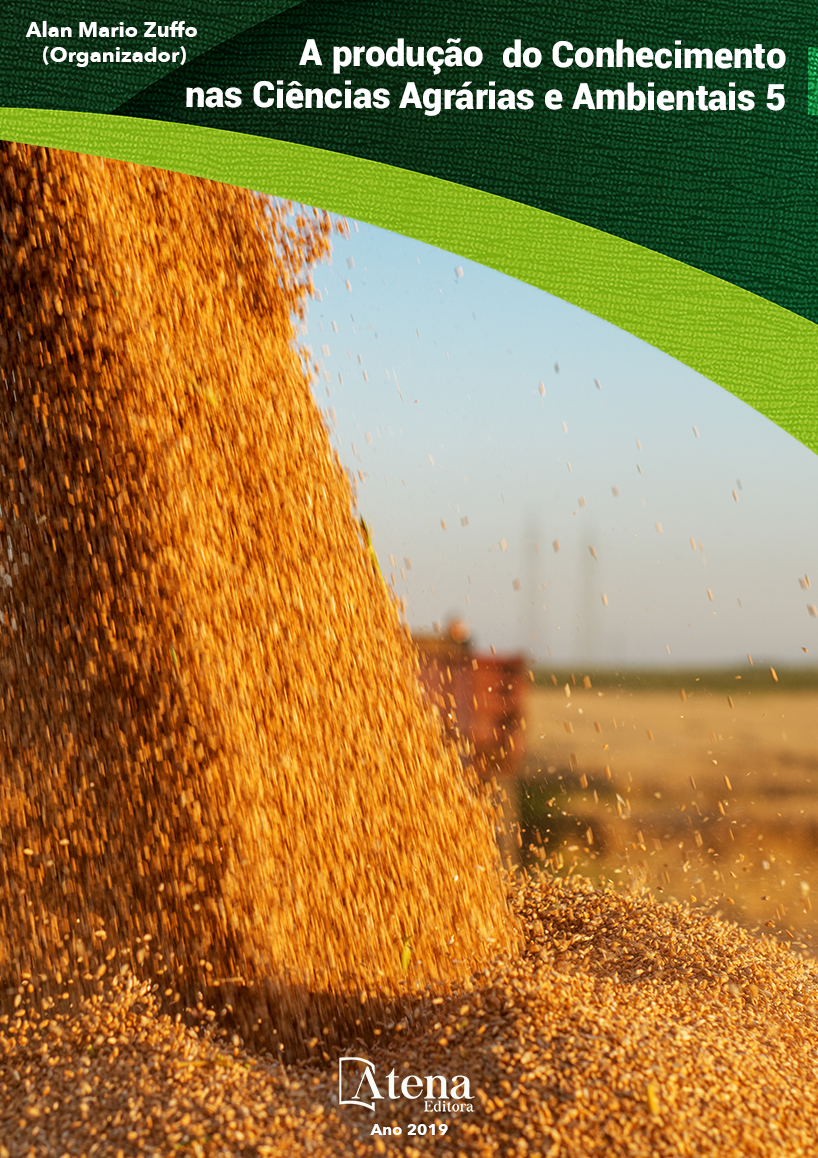
PRODUÇÃO DE MUDAS CÍTRICAS EM SANTA LUZIA DO INDUÁ, MUNICÍPIO DE CAPITÃO POÇO/PARÁ
A produção de mudas cítricas, é
fortemente desenvolvida na cominidade de
Santa Luzia do Induá, zona rural do município
de Capitão Poço/PARÁ. Neste sentido, o estudo
teve como objetivo fazer um levantamento
sobre a produção de mudas cítricas na referida
comunidade. A pesquisa foi desenvolvido
com base na aplicação de questionários
semiestruturados, onde foi entrevistado 50
viveiristas, no qual estes foram enquadrados
como pequenos, médios e grandes produtores,
conforme número de mudas produzidas. Os
dados foram representados atraves de Gráficos
e Figuras. Foi verificado que 74% dos viveiristas
da comunidade produzem mudas tanto do tipo
copa formada quanto do tipo vareta, 19% do
tipo copa formada e apenas 7% realizam a
produção do tipo vareta. Dentre as variedades
de mudas cítricas produzidas, destacam-se a
Laranja Pêra Rio (Citrus sinensis L. Osbecek),
Limão-Tahiti (Citrus aurantifolia C. Swingle) e
Tangerina Ponkan (Citrus reticulata). Todos os
viveiristas ainda produzem as mudas no solo,
a céu aberto, enquanto que apenas quatro
produtores trabalham também com a produção
de mudas conforme exigidos na Intrução
Normativa nº 48 do MAPA em seu Art. 28º. No
que diz respeito ao ataque de pragas e doenças,
8% falaram não ter problemas com o ataque
fitossanitário, enquanto que cerca de 92% dos
viveiristas, disseram que existe o ataque de
fitopatógenos em suas mudas. Nesse contexto,
para potencializar ainda mais a produção
de mudas na comunidade é importante a
realização de parcerias com instituições
publicas e privadas, possam contribuir com
pesquisas, criando novas técnicas de cultivos
para incremento da produção.
PRODUÇÃO DE MUDAS CÍTRICAS EM SANTA LUZIA DO INDUÁ, MUNICÍPIO DE CAPITÃO POÇO/PARÁ
-
DOI: 10.22533/at.ed.8831926041
-
Palavras-chave: Ataque fitossanitário. Citros. Mapa. Viveiristas.
-
Keywords: Phytosanitary attack. Citros. MAPA. Viveiristas.
-
Abstract:
The production of citrus seedlings, is strongly developed in the community
of Santa Luzia do Induá, rural area of the municipality of Capitão Poço / PARÁ. In this
sense, the study aimed to make a survey about the production of citrus seedlings in the
community. The research was developed based on the application of semistructured
questionnaires, where 50 nurseries were interviewed, in which they were classified as
small, medium and large producers, according to the number of seedlings produced.
The data were represented by Graphs and Figures. It was verified that 74% of
community nurseries produce seedlings of both the canopy type and the rod type, 19%
of the canopy type, and only 7% of them produce the rod type production. Among the
varieties of citrus seedlings produced, the most notable are the Orange Pear River
(Citrus sinensis L. Osbecek), Tahitian Lemon (Citrus aurantifolia C. Swingle) and
Ponkan Tangerine (Citrus reticulata). All nurseries still produce the seedlings in the
ground in the open, while only four growers also work with the production of seedlings
as required in MAPA’s Normative Instruction 48 in its Art. Concerning the attack of
pests and diseases, 8% said they had no problems with the phytosanitary attack, while
about 92% of the nurserymen said that there is an attack of phytopathogens on their
seedlings. In this context, in order to further enhance the production of seedlings in the
community, it is important to establish partnerships with public and private institutions,
to contribute with research, creating new crop techniques to increase production.
-
Número de páginas: 15
- Letícia do Socorro Cunha
- Lucila Elizabeth Fragoso Monfort
- Wanderson Cunha Pereira
- Antonia Taiara de Souza Reis
- Francisco Rodrigo Cunha do Rego
- Felipe Cunha do Rego
- Luane Laíse Oliveira Ribeiro


